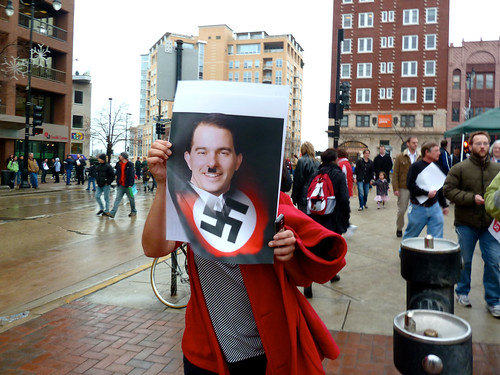This isn’t specifically about any one instance of BBC bias, but it is directly, 100% relevant to our ongoing debate about whether or not it’s possible for there to be an institutional bias at the BBC even though there’s no deliberate conspiracy to push an agenda or narrative (except, you know, when there is: e.g. 28-Gate and the deference to Islamic sensitivities and multiculturalism).
Will Bloomberg Challenge the New York Times
Now that Nanny Bloomberg is done with trying to use political power to directly control the personal behavior of New Yorkers, he’s aiming bigger. Despite his previous claim of not wanting to get into editorial control of Bloomberg News, well, that’s what he’s now doing.
Is Mike Bloomberg the next William Randolph Hearst, a tycoon who mixes media and politics, influencing the course of the nation? Bloomberg has the money and the opportunity; we know he wants a seat at the policy table.
In a recent piece, The New York Times says that the former New York City mayor is involving himself in the editorial activities of Bloomberg LP. The Grey Lady sounds concerned, and rightly so. Just as Mr. Bloomberg won unlikely election as mayor of a heavily Democrat city by skipping through the political middle, he could also steer Bloomberg’s news operation in between the left-leaning Times and right-sided Dow Jones, ending up where a great many Americans reside. It would be a fitting and satisfying next step for the successful financier and politician, who is clearly not ready to retire.
Anybody who thinks Bloomberg is going to seek the happy middle hasn’t been paying attention. I’m not sure how the normally fairly sensible Liz Peek thinks Bloomberg was anything other than a life-long Democrat dressed up first in Republican sheep’s clothing, and then pretended to be an Independent, and it’s worrying that she can look at the track record of his third extra-legal term in office and see anything even remotely resembling the middle ground where most Americans live. But that’s another story. The story here is that Bloomberg News has grown to be much bigger, staff-wise, than the WaPo, and is rivaling the NY Times. I’m bringing up this article because of the following:
But, it’s not all about numbers. It is also about positioning. The New York Times has become more liberal over time, derided on the right these days as a virtual mouthpiece for the Obama White House. The paper has not endorsed a Republican for president since Dwight D. Eisenhower in 1956; the nod has gone to the Democrat candidate in every election since.
It’s not just those on the right that see the paper as tilting left — former ombudsman Daniel Okrent wrote a farewell piece in 2004 describing the paper as slanted liberal, especially on topics like gay marriage. As he said, rather gingerly, “On a topic that has produced one of the defining debates of our time, Times editors have failed to provide the three-dimensional perspective balanced journalism requires.” He noted that the paper unintentionally tends to “tell only the side of the story your co-religionists wish to hear,” but adds that “negligence doesn’t have to be intentional.”
Another departing public editor, Arthur Brisbane, made a similar confession as he exited the paper a year and a half ago. He admitted “the hive on Eighth Avenue is powerfully shaped by a culture of like minds,” a “kind of political and cultural progressivism” that leads to “developments like the Occupy movement and gay marriage” being treated “more like causes than news subjects.” And, this is from the inside.
Emphases mine.
This isn’t the wittering of some angry, fat, old, single white male (or whatever other pejoratives defenders of the indefensible like to hurl at us) ranting because some media outlet publishes opinions he doesn’t like, pretending to read their minds and reading things that aren’t there. This is a case of two different professional, highly experienced journalists (three if you count Peek as well) saying that there is an institutional bias in a world-class, long-lived news organization, and that it happens quite naturally due to the personnel involved.
Does that sound familiar? It should. It’s what I’ve been saying about the BBC for years. For evidence of the hive-mind at the BBC, one need look no further than the “In Their Own Tweets” page. For more evidence, look at the “In Their Own Words” page. Then read the last line of this feature on the BBC’s “North America editor”, Mark Mardell. Then consider the evidence of 28-Gate, Robin Aitken’s book, Peter Sissons’ complaints, and Jeremy Paxman’s statement on using the World Service to “spread influence”. These are only the tip of the world’s largest media iceberg.
I submit that the evidence of this hive-mind which causes the institutional bias at the BBC is irrefutable. And professional, experienced journalists know that this is a very real phenomenon in media organizations.




